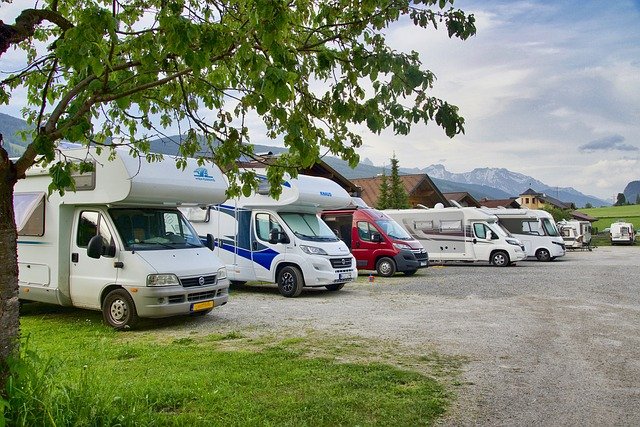Choosing the Perfect Small Camper for Your Next Road Trip
Choosing the perfect small camper for your next road trip can greatly improve your travel experience. Whether you are an experienced traveler or a first-time camper, selecting the right vehicle is key to ensuring comfort, convenience, and flexibility throughout your journey.

Key Features to Consider When Selecting a Small Camper
When evaluating small campers, sleeping capacity stands as the primary consideration. Most compact units accommodate two to four people, though layouts vary significantly. Interior height matters for taller travelers, with some models offering walkable space while others require crouching. Storage solutions deserve careful attention, as small spaces demand efficient organization systems.
Kitchen facilities range from basic cooktops to full galleys with refrigerators and microwaves. Bathroom amenities vary dramatically, from portable toilets to wet baths combining shower and toilet areas. Electrical systems should match your power needs, whether relying on battery power or requiring solar panels and inverters for extended off-grid camping.
Weight specifications directly impact which vehicles can safely tow your camper. Dry weight excludes water, propane, and personal belongings, while gross vehicle weight rating indicates maximum loaded capacity. Understanding these numbers prevents dangerous overloading and ensures proper vehicle compatibility.
Popular Small Camper Models and Their Unique Benefits
Teardrop trailers represent the most compact option, typically measuring 8-12 feet in length. These streamlined units excel in fuel efficiency and easy towing while providing basic sleeping quarters and outdoor kitchens. Models like the T@B series offer modern amenities in minimal footprints.
Van-based campers provide excellent maneuverability with self-contained living spaces. Class B motorhomes built on commercial van platforms offer bathroom facilities and full kitchens while maintaining standard parking compatibility. These units work well for urban exploration and remote camping alike.
Small travel trailers measuring 13-22 feet offer more interior space without requiring large tow vehicles. Many feature slide-outs that expand living areas when parked. Compact fifth wheels provide similar space with improved towing stability, though they require pickup trucks with special hitching systems.
Fuel Efficiency and Environmental Considerations
Small campers significantly reduce fuel consumption compared to larger RVs. Lightweight teardrop trailers may decrease fuel economy by only 2-4 miles per gallon, while larger travel trailers can impact efficiency by 6-10 mpg. Aerodynamic designs minimize wind resistance, improving overall fuel performance during highway travel.
Solar panel installations help reduce reliance on generator power and campground hookups. Many modern small campers accommodate rooftop solar arrays that charge house batteries during daylight hours. LED lighting and energy-efficient appliances further reduce power consumption, extending off-grid capabilities.
Environmental impact extends beyond fuel usage to include manufacturing materials and disposal considerations. Aluminum construction offers durability and recyclability, while fiberglass provides lightweight strength. Proper maintenance extends camper lifespan, reducing replacement frequency and associated environmental costs.
Cost Analysis: Buying vs. Renting a Small Camper
Purchase prices for new small campers range from $15,000 for basic teardrop trailers to $80,000 for luxury compact motorhomes. Used models offer substantial savings, with 3-5 year old units typically priced 30-50% below new equivalents. Financing options include RV-specific loans with extended terms and competitive interest rates.
Rental costs vary by location and season, typically ranging from $75-200 per day for small campers. Weekly rates often provide better value, while monthly rentals suit extended trips. Peak season pricing in popular destinations can double standard rates, making advance reservations essential.
| Camper Type | Purchase Price Range | Daily Rental Cost | Weekly Rental Cost |
|---|---|---|---|
| Teardrop Trailer | $15,000 - $35,000 | $75 - $125 | $450 - $750 |
| Small Travel Trailer | $25,000 - $55,000 | $100 - $150 | $600 - $900 |
| Class B Motorhome | $60,000 - $120,000 | $150 - $250 | $900 - $1,500 |
| Compact Fifth Wheel | $35,000 - $75,000 | $125 - $175 | $750 - $1,050 |
Prices, rates, or cost estimates mentioned in this article are based on the latest available information but may change over time. Independent research is advised before making financial decisions.
Safety and Comfort Tips for Small Camper Travel
Proper weight distribution prevents dangerous sway and improves handling stability. Load heavy items low and centered, securing all loose objects before travel. Regular tire pressure checks become critical with increased loads, as underinflated tires can cause blowouts or poor handling.
Backup cameras and extended mirrors improve visibility when maneuvering larger combinations. Practice parking and backing in safe environments before attempting crowded campgrounds. Understanding turning radius limitations prevents damage to both camper and surrounding obstacles.
Interior comfort depends on adequate ventilation and climate control. Roof vents and windows provide natural airflow, while fans improve air circulation during hot weather. Proper bedding and blackout curtains enhance sleep quality in varying environments. Carbon monoxide and propane detectors provide essential safety monitoring in enclosed spaces.
Small campers open doors to countless adventure opportunities while maintaining essential comforts. Whether choosing a minimalist teardrop or well-equipped travel trailer, matching features to your specific needs ensures enjoyable travels. Consider rental experiences before purchasing to test different layouts and amenities. With proper selection and preparation, your small camper becomes a gateway to memorable road trip experiences across diverse landscapes and destinations.




